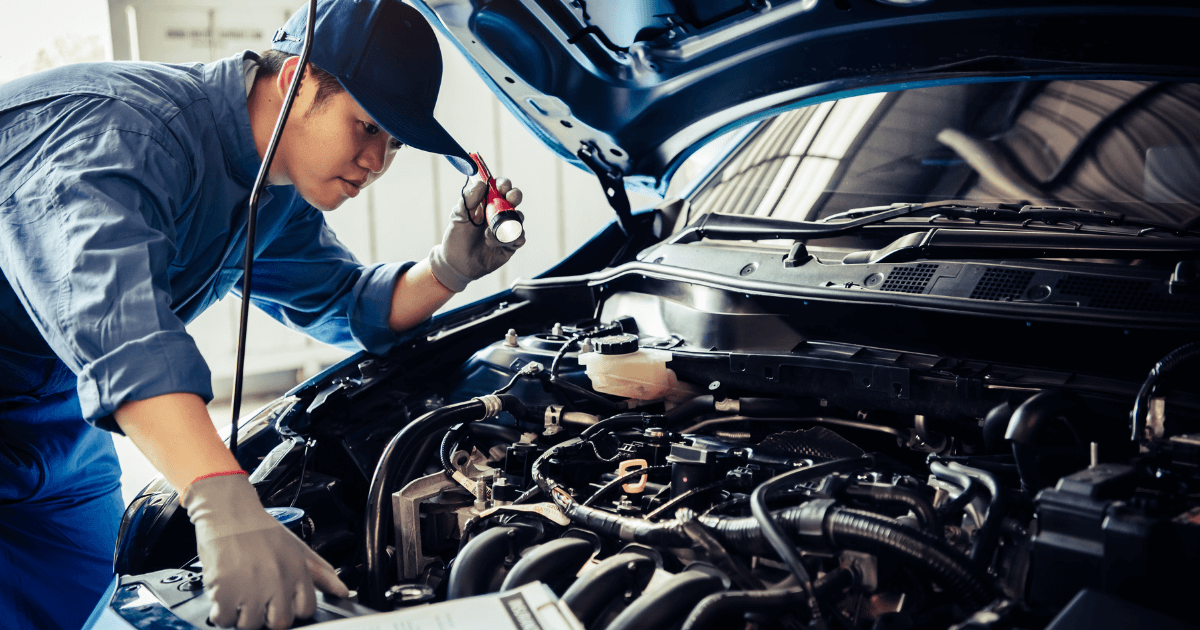It Probably Just Needs a Mechanic


In the realm of car troubles, not every issue has a mystical or spiritual explanation. Sometimes, the solution is as straightforward as visiting a trusty mechanic. Let's dive into the practical side of things and explore why your car may not be starting, without delving into the esoteric.
Cars are complex machines with countless intricate components working together. Over time, wear and tear can take a toll on these parts, leading to malfunctions or breakdowns. It's not uncommon for a car's engine to refuse to start due to mechanical issues.
When faced with a car that won't start, it's essential to consider the physical aspects before delving into the realm of spirituality. Ask yourself: When was the last time your car had a check-up or routine maintenance? Have you been diligent in following the manufacturer's recommended service schedule?
Checking the obvious issues first before consulting a mechanic
First things first, take a glance at your dashboard. Are there any warning lights illuminated? Your car's computer system may be trying to communicate a problem to you. It could be something as simple as a loose gas cap or a more serious issue that requires professional attention. Refer to your owner's manual or search online to understand what each warning light signifies.
The battery
Take a look at the connections and make sure they are secure. Sometimes, a loose or corroded connection can disrupt the flow of electricity, preventing your car from starting.
Give the battery terminals a gentle wiggle and tighten them if necessary. If you notice heavy corrosion buildup, it may be time to clean or replace the terminals.
Next up, the fuel tank
It may sound obvious but double-check that you have enough fuel in your tank. It's easy to overlook, especially during a hectic day.
If your fuel gauge is malfunctioning or you've been driving on a near-empty tank, it's possible that you're simply out of fuel. In that case, a trip to the gas station should solve your starting problem.
Moving on to the ignition switch
Is your key fully inserted and turned to the "on" position? Sometimes, the key can get stuck or not engage properly, causing the engine to remain silent. Give it a gentle jiggle and try again. If you have a spare key, it's worth giving that a try as well, as the issue may lie with the key itself.
Lastly, the clutch pedal
If you're driving a vehicle with a manual transmission, make sure the clutch pedal is fully depressed. Many cars have a safety mechanism that prevents the engine from starting unless the clutch is engaged. It's a small detail that can easily slip our minds, especially in moments of frustration.
When to take your car to the mechanic
After checking for these common issues and confirming that they are not the cause of your car's refusal to start, it's time to consider seeking professional help. But how do you know when it's the right time to take your car to the mechanic?
If you've exhausted the obvious possibilities and still can't get your car started, or if you're unsure about diagnosing and fixing the problem yourself, it's best to consult a qualified mechanic. They have the expertise and specialized tools to identify and address complex mechanical issues.
Additionally, if you notice any peculiar sounds, smells, or vibrations when attempting to start your car, it's a good idea to seek professional assistance. These signs could indicate more serious problems that require immediate attention to prevent further damage.
You should also consider the age and mileage of your vehicle. Older cars or those with high mileage are more prone to mechanical issues. If your car falls into these categories and you frequently experience starting problems, it's wise to have a mechanic inspect it to ensure its overall health and performance.
DIYs are not always the best approaches
You should trust your instincts. If you feel uncertain or uncomfortable trying to diagnose and fix the problem on your own, it's always better to err on the side of caution and consult a professional.
They can provide accurate diagnostics and reliable solutions, giving you peace of mind and getting you back on the road in no time.